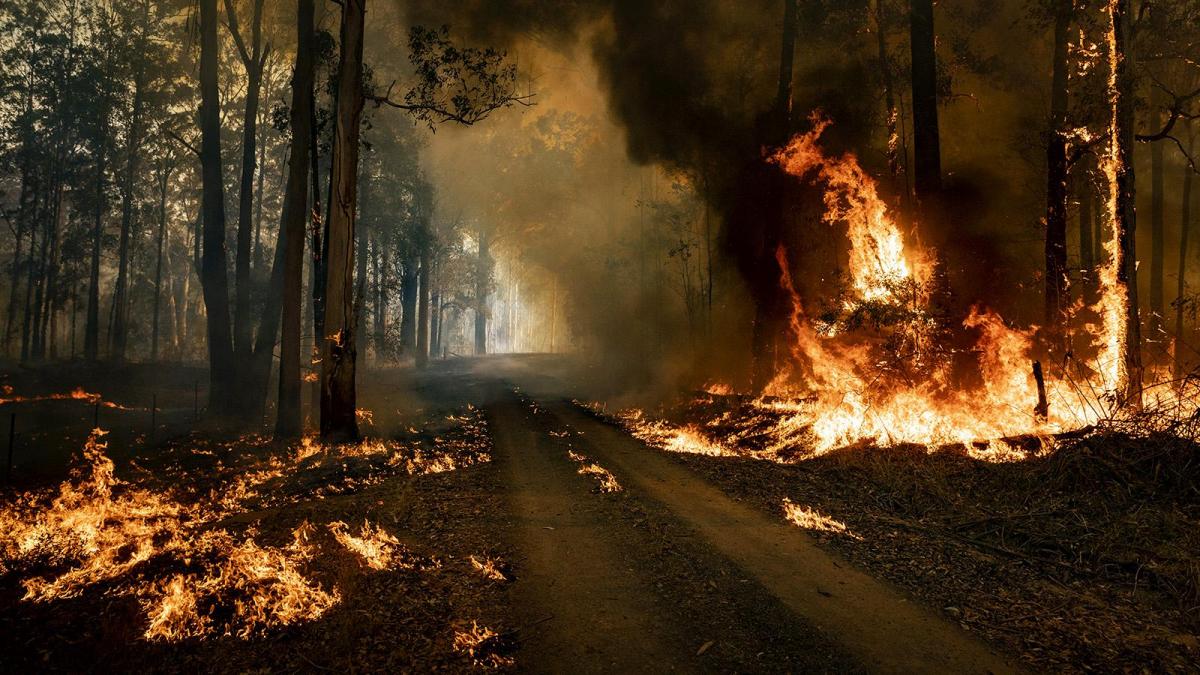Firefighting aircraft based in Australia are now becoming a world resource, following a wild northern hemisphere summer of bushfires in Canada, the USA and Greece.
Key points:
- Australian authorities are planning to use aerial firefighting earlier and not wait for major outbreaks
- Dubbo is hosting an international aerial firefighting conference this week to improve global strategy
- Specialist Australian crews and air tankers are assisting with wildfires in the northern hemisphere
Despite the tragic death of two pilots in a firefighting crash in Greece last week, Australian fire authorities say aerial firefighting remains the most effective protection method during bushfires.
“There is a huge reliance, not just here in Australia, but across the world now, on aerial firefighting and how it actually can assist those firefighters on the ground,” said NSW Rural Fire Service (RFS) Inspector Ben Shepherd.
The RFS 737 Large Air Tanker “Marie Bashir” was deployed to California earlier this year, where wildfires have gripped the state’s south and spread into Nevada.
Inspector Shepherd says “some 700 firefighters” have been sent overseas on rotation, and the plane is being operated by a specialist RFS crew working with local fire authorities.
Inspector Shepherd said aerial firefighting would also work best for Australia’s upcoming bushfire season, particularly in rough terrain.
“In recent years, we’ve seen the growing expertise in aerial firefighting and that over a broad range of aviation resources,” he said.
International aerial firefighting conference
Inspector Shepherd joined delegates in Dubbo this week for the Aerial Pacific Conference.
It has bought together fire authorities from across Europe, North America, Asia and the Middle East to discuss how new flight innovations can support traditional firefighting.
The shocking northern hemisphere summer blazes have local fire teams on alert to deploy aircraft early for firefighting efforts rather than using aircraft at the height of a major fire.
On Tuesday, the Bushfire Danger Period (BFDP) began in parts of the NSW New England region.
Other areas across the state will progressively enter into a BFDP until October 1.
“As we move into this season, we are looking at that increased risk, especially in grass fires,” Inspector Shepherd said.
“That’s where aviation assets can definitely help those firefighters on the ground.”
Lessons learned from recent fire seasons and aviation safety will also be on the conference agenda, he says.
“How we actually use those aircraft, when we use them, what they’re carrying on board, whether that be water or retardant or gel,” Inspector Shepherd said.
“These are all discussions firefighting agencies continue to have about trying to reduce the risk on the community.”
Heightened concern for season ahead
With many global regions represented at the conference, the RFS hopes to learn from the real-life experiences of cities like Seattle and Athens, which have also been dealing with devastating wildfires and poor air quality.
The sharing of ideas will be beneficial ahead of opening a new Australian aerial firefighting training base in Dubbo later this year.
“We’ve got our aviation centre of excellence that is due to be open soon,” Inspector Shepherd said.
“It’s important as Dubbo is a large air tanker base.
“Ultimately, it is about how we actually best do this [and] how we how we safely do this.
“Because there is a huge reliance not just here in Australia, but across the world.”
Source: ABC News







